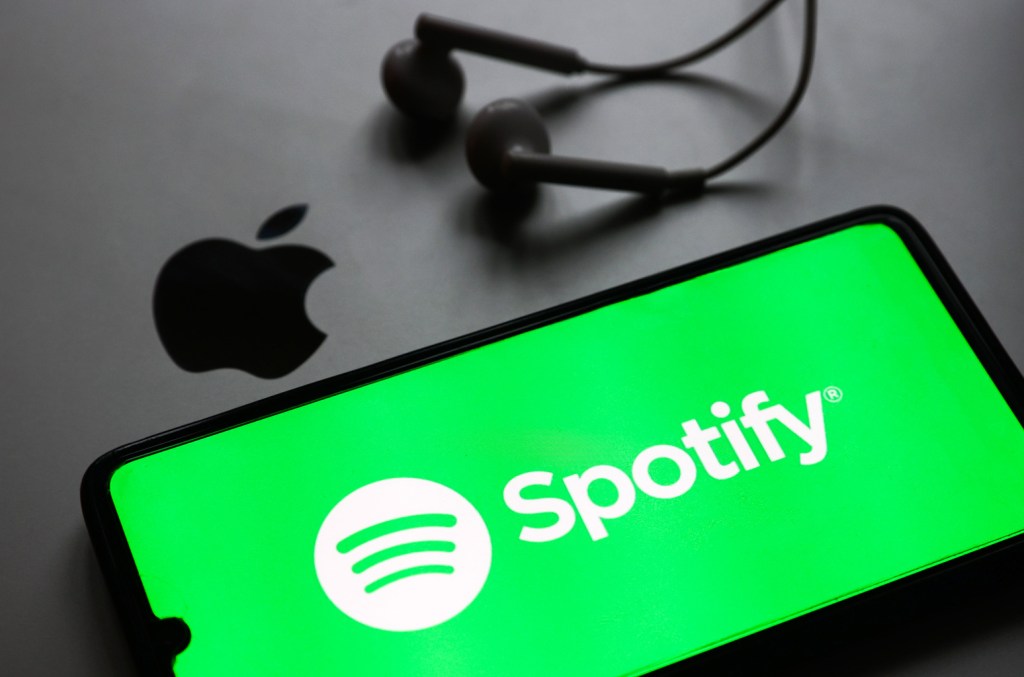Spotify has officially introduced a basic premium tier for users who prefer not to pay extra for audiobooks, the company announced on Friday (June 21). The plan is priced at $10.99 — $1 less than its premium individual plan, which includes 15 hours of audiobook listening time per month.
The unveiling of the base tier, which Spotify teased during its first-quarter earnings call in April, follows the company's announcement on June 3 that it would raise prices in the United States for the second year in a row. Starting in July, its premium individual plan will go up to $11.99, while its duo plan will go up to $16.99 a month (up from $15.99) and its family plan will jump from 3 up to $19.99 per month.
The news also follows recent Bloomberg report that Spotify plans to release a high-fidelity audio tier later this year for $5 more per month than its premium individual plan.
Shares of Spotify rose 1.5% to $317.86 this week, marking their third straight weekly gain. On Friday alone, the stock gained more than 1.2%.
The new tier comes amid a bitter battle between Spotify and music publishers after the streamer decided to reclassify its premium offerings as “packages,” which qualifies those plans for a reduced rate on engineering royalties in the United States States. According Advertising sign According to estimates, publishers and songwriters will earn about $150 million less from royalties in the first year after the change.
On May 15, nearly a month after the packages were first reported, the National Music Publishers Association (NMPA) sent Spotify a cease and desist letter for allegedly hosting unlicensed lyrics, music videos and podcast content on the service. The next day, the Mechanical Licensing Collective (MLC) sued the streaming company, claiming it had “improperly” classified its premium tiers as bundles.
Later in May, NMPA President/CEO David Israelite sent a letter to the leadership of the Judiciary Committee in both the House and Senate requesting revision of the statutory authorization in Section 115 of the Copyright Act, which “prevents private negotiations in a free market”. for mechanical rights for songwriters and music publishers in the United States. At the NMPA's annual meeting on June 12, Israelite announced that the organization had filed a formal complaint with the Federal Trade Commission (FTC) and sent letters to the attorneys general for nine states along with consumer trade groups, alleging that Spotify has violated Restore Online Consumer Confidence Act (“ROSCA”), Section 5 of the FTC Act and other consumer protection laws.
Spotify has hit back at the NMPA's various actions, at various points calling its charges “baseless” and “misleading.” Regarding the MLC lawsuit, the streamer argued that “bundles were a critical element” of the Phono IV deal struck between publishers and streaming services, that “multiple DSPs include bundles as part of their mix of subscription offers” and that it “paid a record amount to publishers and [collecting] societies in 2023 and is on track to pay an even larger amount in 2024.”



